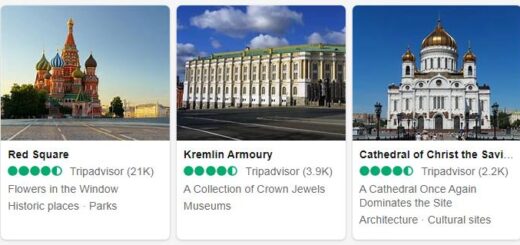Georgia 2018
The population of Georgia in 2018 was estimated to be around 3.7 million people. The majority of the population is comprised of people of Georgian, Russian, and Armenian descent with a smaller percentage of other ethnicities. The economy is largely reliant on exports, manufacturing, and services such as agricultural production and tourism. Foreign relations remain strong with Georgia’s neighbors in the Commonwealth of Independent States (CIS) as well as other countries in Europe and beyond. According to extrareference, Georgia has been a semi-presidential republic since 1995. In 2018, President Giorgi Margvelashvili was re-elected for a second consecutive term after winning 66% of the popular vote in presidential elections held that year.
Yearbook 2018
Georgia. According to Countryaah.com, Tbilisi is the capital city of Georgia, a country located in Western Asia. Former ex-President Micheil Saakashvili was sentenced in January to three years in prison for abuse of power. Georgia then attempted to extradite Saakashvili from Ukraine, where he led an opposition movement and is accused of trying to overthrow the government.
- According to Abbreviationfinder: GEO is an three letter acronym for Georgia.
When the Saakashvili movement in February led a protest march through Kiev demanding the president’s departure, Ukraine decided to deport Saakashvili to Poland. From there he went to the Netherlands, where he has his family.
Later in the year, Saakashvili was sentenced in a new Georgian trial to another six years in prison, also for abuse of power. Saakashvili labeled all the allegations as false and politically motivated.
The billionaire and former Prime Minister Bidzina Ivanishvili resumed the leadership of the ruling party alliance Georgian Dream in the spring. Although he has been formally absent from politics for a period, he is considered to exert strong influence in the scenes.
In May, President Giorgi Margvelashvili criticized the government’s attitude to the Russian Federation. He called for strategic patience, not to respond to all Russian provocations and to give the Kremlin a pretext to use force against Georgia. He also accused the government of a monopoly of power over the opposition, claiming that persons who committed the abuse are allowed to continue in the judiciary and security apparatus.
Prime Minister Giorgi Kvirikasjvili visited the United States in May and promised enhanced financial and security assistance to Georgia. The United States called on the Russian Federation to withdraw its military from the breakaway republics of Abkhazia and South Ossetia, where Russian troops have remained since the 2008 war. The United States also expressed support for future Georgian membership in NATO.
In May, thousands of people demonstrated in Tbilisi and demanded the prosecutor’s departure following allegations of political corruption in the judiciary. The prosecutor left his post, but the protests continued and grew with demands for the government’s resignation. The anger involved a trial for the murder of two teenage boys, where the guilty were deemed to have escaped or received mitigated punishment with the help of relatives in the prosecution office.
The father of one of the murdered boys led the demonstrations, which grew into mass protests against a judicial system deemed corrupt by the elite for the elite. Strikes broke out in parallel with the protests and crippled public transport in Tbilisi. Several opposition activists and politicians were arrested when police disbanded tent camps in the center of Tbilisi.
In June, Prime Minister Kvirika Kashvili resigned under pressure and announced his departure. He then referred to contradictions with Georgian dream party leader Ivanishvili. The entire government resigned, and former Finance Minister Mamuka Bakhtadze was elected by Parliament as new Prime Minister.
President Giorgi Margvelashvili said at the NATO Summit in Brussels in July that Georgia met all requirements and was ready to join NATO “today”. But the NATO countries repeated their 2008 decision that Georgia should become a member without setting a timetable.
Critics felt that President Donald Trump’s actions at the NATO meeting were detrimental to the issue of Georgia’s (and Ukraine’s) future relationship with NATO. Trump broke the agenda at a meeting discussing member states’ contributions to NATO’s economy.
In August, NATO conducted a major military maneuver in Georgia with approximately 3,000 troops from Georgia, the United States and eight other NATO countries as well as Armenia, Azerbaijan and Ukraine.
Russian Federation Prime Minister Dmitry Medvedev warned of a terrible conflict if NATO takes Georgia as a member. NATO’s eastward expansion, as more and more countries in the neighborhood of the Russian Federation become members, is a major security threat to the Russian Federation, according to Medvedev.
The campaign for the October presidential election was dominated by accusations of corruption in various directions. The Georgian Dream Government Party supported the independent candidate Salom谷 Zurabishvili. She was born in France by Georgian refugees, came to Georgia as French ambassador, became Georgian foreign minister and presidential candidate. Foremost opposition candidate was Grigol Vasjadze from the United National Movement, including his former Foreign Minister.
In the first round, Zurabishvili barely won over Vasjadze, but when no one got more than 50 percent, it became a decisive round of elections in December between the two main. It was won by Zurabishvili with close to 60 percent compared to just over 40 percent for Vasjadze.
During the year, plastic bags and plastic bags were banned in Georgia. Only biodegradable and compostable bags are allowed, and must be labeled with material, thickness and manufacturer. Violations of the ban can be punished by fines equivalent to close to SEK 1,700 for the first time and double the amount for repeated wrongdoing.



